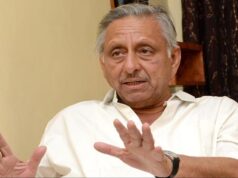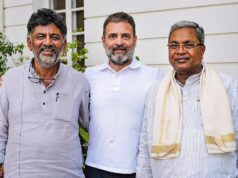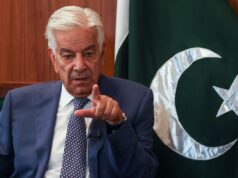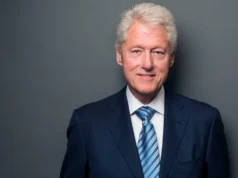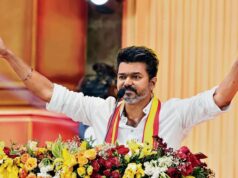Recently, Prime Minister Narendra Modi claimed that Jawaharlal Nehru’s Congress government ignored then-Home Minister Sardar Vallabhbhai Patel’s 1947 recommendation on the Kashmir problem. How did Patel feel about using force to retake Pakistan-occupied Kashmir (POK) and bringing the matter before the UN? Take a look at the differences between Patel and Nehru over Kashmir.
The Congress government, led by Jawaharlal Nehru, ignored then-Home Minister Sardar Vallabhbhai Patel’s request on Tuesday for the army offensive to continue until Pakistan-occupied Kashmir (POK) was completely regained, according to Prime Minister Narendra Modi. PM Modi emphasized that if this decision had been made, it could have contributed to the cessation of the terrorism that continues to impact India. How did Prime Minister Nehru’s and Home Minister Patel’s positions on Kashmir differ from one another?
Let’s first examine what PM Modi said during his Tuesday rally.
Sardar Patel wanted the army to keep fighting till POK was retaken. However, Modi said that Sardar Sahib’s advice was not adhered to. And for the past 75 years, these mujahideen have been killing people. Pahalgam’s events were merely a twisted version of the same thing. Pakistan has always lost against the Indian Army. Pakistan realized it couldn’t defeat India,” he added.
Following the April 22 incident in Pahalgam, where 26 people were slain by Pakistani and Pakistan-trained terrorists, the prime minister made this remark. On May 7, India began Operation Sindoor, targeting terrorist camps in Pakistan and POK. A mini-war broke out between India and Pakistan as a result.
During his Tuesday speech on Operation Sindoor and the Kashmir issue, Prime Minister Modi emphasized how the situation in Kashmir might have been different if Patel’s opinions had been accepted.
Patel’s opinions were very different from Nehru’s, ranging from offering military assistance to Hari Singh, the ruler of Jammu and Kashmir, to continuing the Army offensive to retake Pakistan-occupied Kashmir, to bringing the matter before the UN.
It’s also noteworthy that Patel’s opinions on Kashmir itself have changed.
PATEL’S PERSPECTIVES ON POK AND KASHMIR CHANGED OVER TIME
Patel’s opinions on Kashmir altered considerably, and in fact, only after September 13, 1947, according to historian Rajmohan Gandhi, author of Patel: A Life.
“Vallabhbhai remained indifferent to Kashmir till September 13, 1947. In a letter to Baldev Singh that morning, he had stated that he would accept the fact ‘if [Kashmir] decides to join the other Dominion’. When he learned later that day that Pakistan had approved of Junagadh’s accession, his perspective shifted,” Gandhi said in his book.
This change had a straightforward and useful rationale, according to Sardar Patel, who was renowned for his rationality.
“Why shouldn’t the Sardar be interested in a Muslim-majority state with a Hindu king if Jinnah was able to establish a Hindu-majority state with a Muslim ruler? After that day, Rajmohan Gandhi writes, “Junagadh and Kashmir, the pawn and the Queen, became his simultaneous concerns.”
He would protect the other and wrest the first. On the chessboard, he would also defend Hyderabad, which he considered to be the King. As we’ve seen, Patel might have permitted the Queen to travel to Pakistan if Jinnah had permitted the King and the pawn to travel to India, but Jinnah turned down the offer,” he continued.
Despite Patel’s disagreement with Nehru, the Kashmir dispute developed as follows.
Nehru told Patel in September 1947 that “forces in Pakistan were making preps to enter Kashmir in large numbers.”
A crucial discussion took place at Nehru’s home on October 26. The Prime Minister of Jammu and Kashmir, Maharaja Hari Singh, Mehr Chand Mahajan, called for the rapid arrival of Indian soldiers in Srinagar.
He cautioned that Kashmir might take Jinnah’s proposals into consideration if India doesn’t act quickly.
Mahajan was instructed to “go away” by an enraged Nehru. However, Patel assertively intervened and declared, “Of course, Mahajan,” “you are not going to Pakistan.” Lord Mountbatten was the one who advocated bringing the Kashmir issue before the UN.
In his autobiography, Gandhi also stated that although Patel had not approved of many of India’s actions in Kashmir, he refrained from interfering with what had been “Nehru’s baby.”
October 26 marked Kashmir’s accession to India.
TO GO CRAWLING TO JINNAH’: PATEL FOR THE PM
Pakistani forces persisted in their advance into the area following Kashmir’s annexation to India on October 26, 1947, and India dispatched its Army to drive the invaders out.
On January 1, 1948, Nehru made the decision to bring the conflict before the UN in an attempt to internationalize it and find a peaceful solution as it intensified. India accused Pakistan of supporting the invasion and went to the UN under Article 35 of the UN Charter.
An important part of this was played by Lord Mountbatten.
“On Mountbatten’s persuasion, Jawaharlal agreed to refer the question to the United Nations as far as Kashmir was concerned,” Rajmohan Gandhi stated in his book.
Mountbatten even suggested that Nehru and he travel to Lahore to speak with Jinnah shortly after a Pakistani attack on Kashmir.
Patel was vehemently opposed to this, stating “For the Prime Minister to go crawling to Jinnah when we are on the stronger side and in the right would never be forgiven by the people of India.” Nehru missed the trip, in part because of his health.
Patel also favored “timely action on the ground” over sending the issue to the UN. “Kashmir was Jawaharlal’s baby by now and Vallabhbhai did not insist,” Gandhi wrote.
In little time, Sardar Patel’s misgivings came to pass.
Rajmohan Gandhi goes on, “After India requested the UN’s help, Patel’s concerns were fully allayed. In response to India’s allegation, Pakistan issued a number of countercharges.
As “the question of vacating the aggression in Kashmir was turned into ‘the India-Pakistan dispute,'” the global conversation’s focus changed. In discussions at the United Nations, “Gopalaswami, for all his ability, and Abdullah, for all his dash, were out-performed by Pakistan’s Zafrullah Khan.”
Despite deep reluctance among India’s leadership, Patel, who was serving as Acting Prime Minister while Nehru was away, finally agreed to a special status for Kashmir. This comprised more concessions than Nehru had originally consented to. “Abdullah pressed for the concessions, Gopalaswami and Azad backed him, and the Sardar did not stand in the way,” noted Gandhi.
Ultimately, Patel was obviously uncomfortable with a number of the choices made about Kashmir.
Patel disapproved of many of India’s actions toward Kashmir, such as the removal of the Maharaja, the truce that left a major portion of the State in Pakistani hands, the offer of a plebiscite, and the reference to the UN. However, despite occasionally making a comment or giving a clue, he never explicitly stated his own solution. Indeed, he told Jayaprakash in August 1950 that Kashmir was irreconcilable.
Even those close to Patel were unable to predict how he would have responded to the Kashmir issue, according to Jayaprakash Narayan, who was thinking back on Patel’s role after his passing.
According to JP, “the Sardar might not have revealed his mind or, perhaps, pragmatic as he was, he might have believed it was useless to apply his mind to the problem unless he was called upon to handle it.” ” Since Kashmir “was Nehru’s baby and Vallabhbhai made no move to pick it up,” it will be remembered.
What becomes clear, though, is that Jawaharlal Nehru and Sardar Vallabhbhai Patel disagreed on a number of Indian policies. Above all, Patel urged Indian military action to keep regaining the areas of Kashmir that Pakistan had unlawfully captured. Patel also disagreed with Nehru over taking the Kashmir problem to the UN in order to internationalize it.
